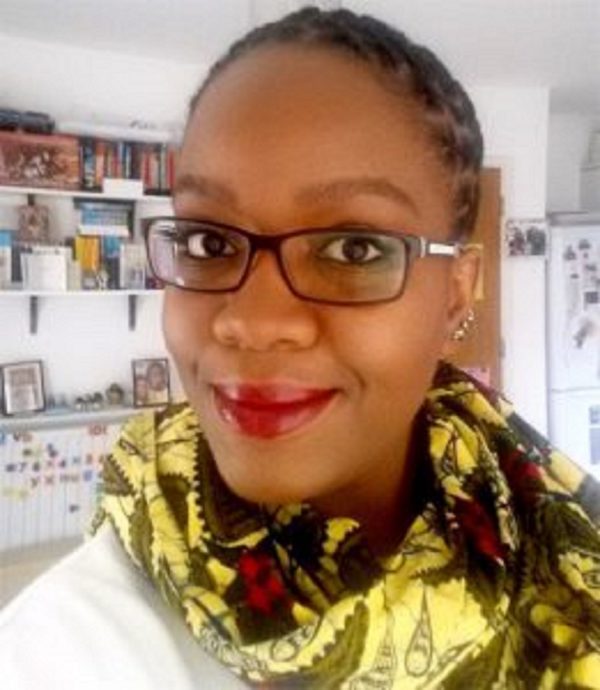
Africa in Dialogue has collected interviews with the five authors shortlisted for the 2017 Caine Prize in an e-book. The prize was won by Sudan’s Bushra al-Fadil. The interviews were all conducted by the magazine’s editor, Gaamangwe Joy Mogami. We are republishing select interviews from the e-book.
*
Nigeria’s Chikodili Emelumadu was shortlisted for “Bush Baby,” published in African Monsters, edited by Margaret Helgadottir and Jo Thomas (Fox Spirit Books, UK. 2015). Chikodili’s work has appeared in One Throne, Omenana, Apex, Eclectica, Luna Station Quarterly and the interactive fiction magazine, Sub-Q. In 2014, Chikodili was nominated for a Shirley Jackson award and is working on her novel.
This conversation took place via email between Gaamangwe Mogami in a green bedroom in the cold, sweetspot of Gaborone, Botswana and Chikodili in the Cambridge heat (Massachusetts), a cozy loft in Hither Green, UK, and later in the middle of the Southbank Centre in London.
Gaamangwe
Congratulations Chikodili! how does it feel to be shortlisted for the biggest award for short story writers?
Chikodili Emelumadu
Surreal, to be honest. Now I’m in London, I reckon I’ll have no choice but to feel quite real once all the events begin.
Gaamangwe
I can imagine! On the surreal and feeling real, your story is a mixture of the surreal and realism, what drew you to the other-worldliness in your story?
Chikodili Emelumadu
I’ve always been drawn to things like that—horror, fantasy, sci-fi. I’m drawn to stories, period. Reading them, listening to them, plotting and writing them. How are we sure that in the grand scheme of things, WE aren’t the otherworldly ones? Perhaps our lives and petty dramas are seen “out there” by beings on other planes, the Gwei-gweis and Mami watas and such.
Gaamangwe
Oh, that is such an interesting thought! It reminds me of the story that perhaps the sky is merely the eye of the creature beyond our ether, snooping in on us, enthralled by this “otherworldliness” that we are to him/her/it. I love these stories too. I got the feeling that “Bush Baby” was an urban legend story from your country, no? When you go back to the time you wrote the story, do you recall what your intention/interest with this particular urban legend was?
Chikodili Emelumadu
I do, yes. My fascination with the Bush Baby probably goes back to my childhood. I went, first, to one of those types of schools surrounded by acres of land. It was there, in primary school, that I first heard of the Bush Baby. It was supposed to be this creature who cried like a human baby to attract passersby and when they went to investigate…. It was easy to believe. I was little, five or six years old, we were literally in the middle of nowhere with streams full of fish and trees for miles. The story probably left a scar on my psyche. And I’m not one to leave a scar alone.
Gaamangwe
I love how we carry our early imprints and how they often come through later in some way especially as art. I often wonder about the origin of urban myths and legends. I get the feeling that sometimes some myths originate from simply the elders trying to discourage some behaviors, you know. Do you know the origin story of this urban legend story? What interests you about using myths and legends ideas in your writing?
Chikodili Emelumadu
I don’t quite know the origin of the cries of the Bush Baby, whether it’s recent urban legend or goes way back. I have tried to imagine though that if it did go back to an earlier time, it might have been a certain kidnapping tactic? My father used to tell stories of slavers and the cunning ways they used to steal people away. It’s not far-fetched then that the cry of a baby in the bush could be used to lure prey—mostly women, I suppose. The Gwei-Gwei or Gwai-Gwai part is Hausa myth.
I think I enjoy telling stories this way because it appeals to something in all of us. It’s universal. In all cultures of the world there are stories of monsters and beasts, spirits and supernatural beings told in every household, around fires and under the moonlight. Even ‘Western’ films and animation that we so thoroughly enjoy—Cinderella, Rapunzel—are based on old Germanic folktales (They are a lot scarier in their original form. Hollywood tends to sanitise them). Stories like mine appeal to the primitive, basic part in all of us: beyond logic. I like to think they are more effective this way. Folktales have survived this long for a reason.
Gaamangwe
This is true. The whole time reading, my heart was beating fast, every part of me aware. You had taken me to our most powerful primitive emotion: fear. But beyond this, I think what intensified this was I cared for your characters, because it was familial. I could see myself and this happening to my sister, for example. How will that be like? I wondered. What attracted you to telling this story from this point of view, of two siblings who are grieving in their own way the loss of their parents?
Chikodili Emelumadu
I, too, am always interested in familial relationships, especially the ways in which societal expectations of gender affects it. So in this story, we see the responsible daughter, the first born who does everything right with her life, playing second fiddle to a younger, more reckless brother. By all accounts, after their father dies, she should get a bigger share by virtue of her position, or at least have their father’s assets shared equally but the bulk of it gets passed down to her brother because he is male. She clearly resents this but perhaps she resents society more for coming between she and her brother in this way. She loves her brother.
Gaamangwe
This is an important story that reflects such an important narrative. Beyond this, what other narratives/ stories are you interested in exploring?
Chikodili Emelumadu
I’m interested in my ancestry, the supernatural, Igbo culture and womanhood, all themes contained in my upcoming novel.
Gaamangwe
Thank you Chikodili for joining me here. I wish you all the best of luck with your writings and the Caine Prize.
*
Download the interviews HERE.
**************
About the Interviewer:
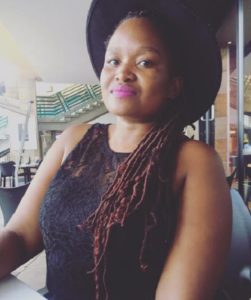 Gaamangwe Joy Mogami is a poet, playwright and screenwriter from Botswana. Her poetry has been published in Kalahari Review, African Writer, Afridiaspora, Poetry Potion, and Brittle Paper. She is the founder and managing editor of an interview magazine, Africa in Dialogue.
Gaamangwe Joy Mogami is a poet, playwright and screenwriter from Botswana. Her poetry has been published in Kalahari Review, African Writer, Afridiaspora, Poetry Potion, and Brittle Paper. She is the founder and managing editor of an interview magazine, Africa in Dialogue.


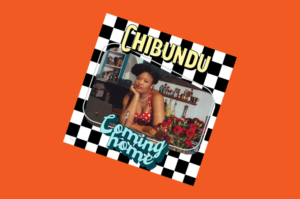
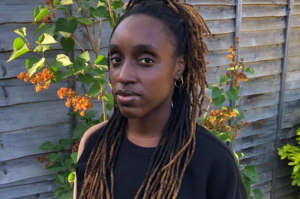


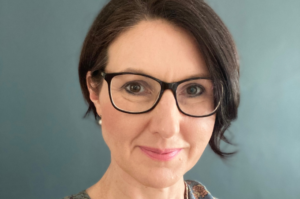


COMMENTS -
Reader Interactions